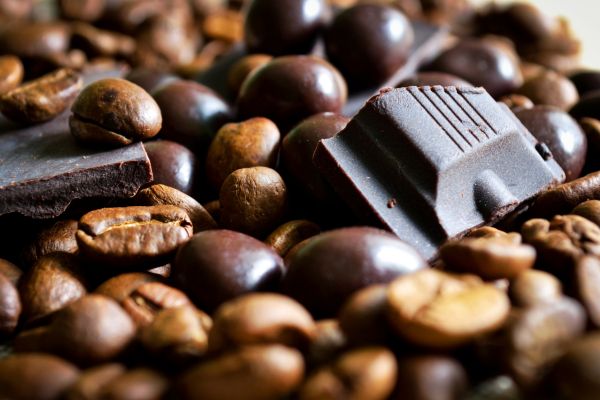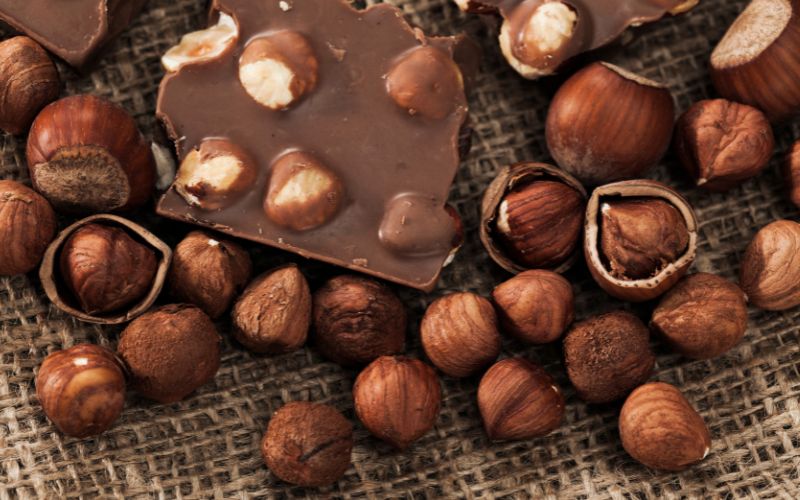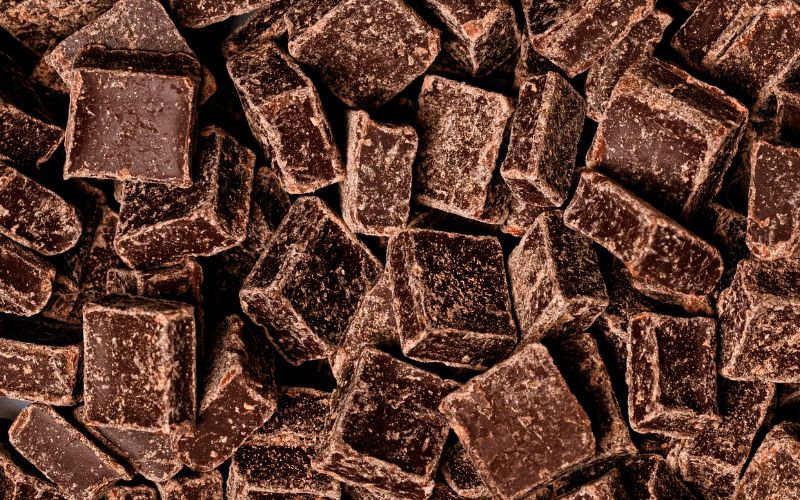Oftentimes, we find ourselves in need of that early morning or afternoon-stretch “pick me up”. For many, they grab a cup of coffee, for others, the caffeine is overwhelming or inconvenient.
Despite this, one still desires the energy hike of caffeine without its lingering effects and overstimulation. Consequently, some of us turn towards “decaf” coffee, until we realize it fails to scratch that elusive moderate-energy itch. As a result, we look for a solution where we can avoid the caffeine but still increase our alertness, leading us here; holding a savory, delectable and hot - or cold- cup of Chocolate.
Chocolate Vs Coffee
 As opposed to caffeine in coffee, theobromine is the main active chemical in chocolate. Containing around 250 milligrams of theobromine and only nineteen milligrams of caffeine (in a fifty gram portion), in comparison to brewed coffee’s 95 milligrams and cold brew’s 238-153 milligrams of caffeine, chocolate refrains from imparting that feeling of over-stimulation associated with coffee, making it the perfect successor to coffee(1).
As opposed to caffeine in coffee, theobromine is the main active chemical in chocolate. Containing around 250 milligrams of theobromine and only nineteen milligrams of caffeine (in a fifty gram portion), in comparison to brewed coffee’s 95 milligrams and cold brew’s 238-153 milligrams of caffeine, chocolate refrains from imparting that feeling of over-stimulation associated with coffee, making it the perfect successor to coffee(1).
Both theobromine and caffeine belong to the methylxanthine chemical family. The uptick in energy we feel from Chocolate and coffee results from theobromine and caffeine binding to the brain’s adenosine receptors.
When an adenosine binds to its receptor, this sends a signal to our body to calm down. The more receptors that the methylxanthine food blocks, the less adenosine chemicals that bind to their respective receptors, and the fewer amount of signals sent to our central nervous system to calm our body down.
Theobromine


The extra methyl group present in caffeine that is absent in theobromine is what causes the overstimulation felt when consuming coffee. This extra methyl group allows caffeine to break the blood-brain barrier, reach the central nervous system, and directly affect our bodies center for sensory impulses.
Theobromine, the active methyl chemical in Chocolate, fails to pass the blood-brain barrier as often as caffeine and reach our central nervous system.
Without the extra Methyl group present in caffeine, theobromine binds to less adenosine receptors, thereby relegating most of its effects to our involuntary muscle groups, therefore relaxing the body while simultaneously providing a moderate increase in alertness (2).
Even black and green tea, popular coffee substitutes for those of us who are caffeine sensitive -or wish to forgo heavily caffeinated drinks- have 47 to 28 milligrams of caffeine respectively in the average cup, compared to the 19 milligrams of caffeine present in a Chocolate drink (3).
The Role of Caffeine in Coffee
Ah, coffee – the aroma that fills cafes and kitchens around the world. This brown elixir owes its pep to caffeine, a natural stimulant that targets your nervous system. Caffeine rapidly enters your bloodstream and works its way into your brain, blocking the neurotransmitter responsible for drowsiness. This leads to heightened alertness, improved focus, and a surge of energy.
The Euphoric Effects of Chocolate
We have all been told tales of the mighty importance of Chocolate in the Mayan and Aztec cultures. The usage of Chocolate in religious ceremonies and its presence in religious texts as a true gift from the Gods, placed Chocolate at the center of these societies. After hypothesizing that Chocolate contained a chemical akin to that of marijuana’s THC, Daniele Piomelli - who was researching at the Neurosciences Institute- found traces of anandamides in modern Chocolate.
These anandamides connect to the same endocannabinoid receptors that THC does, and it is this exact neurotransmitter connection between THC and the endocannabinoid receptors that produces the euphoric and calming effects associated with marijuana (4).
Since higher amounts of anandamides would result in heightened feelings of euphoria and other possible effects, this would explain the extreme amount of importance placed upon chocolate and chocolate consumption in weddings and ritual ceremonies in Aztec and Mayan culture (5).
ChocoVivo owner and chocolate expert, Patricia Tsai, suspects that anandamides have been mostly bred out through mass production, leading modern Chocolate to contain substantially fewer amounts of anandamides than the Mayan and Aztec varieties of pre-colonial America.
Head-to-Head: Caffeine vs. Theobromine

Effects on Alertness
Caffeine's swift impact on alertness is well-known, often providing an immediate boost that lasts for hours. On the other hand, theobromine's effect is smoother, offering a gradual rise in energy levels without the abrupt spike and crash.
Metabolic Impact
Caffeine tends to give your metabolic rate a temporary bump, potentially aiding in weight management. Meanwhile, theobromine’s metabolic influence is less pronounced, but it contributes to the thermogenic effect, promoting a mild calorie-burning effect.
Mood Enhancement
Both compounds can uplift your mood, but caffeine's effect is typically more intense and faster-acting. Theobromine, while gentler, promotes a sense of relaxation and contentment.
So When Do You Drink Chocolate?
- A morning cup: A perfect start to the day, chocolate increases alertness and soothes the nerves, helping to prepare one for the day.
- The Afternoon Stretch: When the afternoon feels long or particularly stressful, the theobromine rich chocolate is the perfect way to calm oneself down while simultaneously moderately increasing one’s energy.
- Evening Wind-Down: Many worry about drinking Chocolate too close to bedtime. Even though it contains minimal amounts of caffeine, if you are extremely sensitive to caffeine, take these trace amounts into consideration. Thus, the optimum time for consumption is 2 to 4 hours before your usual bedtime, as the increase in energy will not affect your sleeping schedule, while the relaxing sensation chocolate brings will alleviate the stresses of the day.
Beyond Energy: Additional Benefits
Antioxidant Content
Dark chocolate boasts significant antioxidant properties, potentially contributing to cellular health. While coffee also contains antioxidants, chocolate's appeal lies in its luxurious taste combined with health benefits.
Cardiovascular Health
Theobromine's vasodilating effect can have a positive impact on blood pressure, whereas coffee has been associated with both positive and negative cardiovascular effects depending on consumption patterns.



